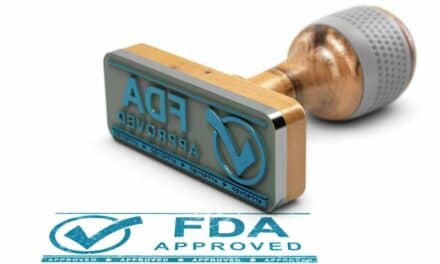The U.S. FDA has alerted healthcare providers to the possibility that patients who have the Medtronic Heartware Ventricular Assist Device (HVAD) System and appear to present with pump thrombosis may have a welding defect in the internal pump causing the pump to malfunction.
Medtronic recently issued an Urgent Medical Device CorrectionExternal Link Disclaimer to inform healthcare providers of the pump weld defect. Medtronic is investigating which HVAD pumps may be affected.
The Medtronic HVAD System is a durable left ventricular assist device (LVAD) that includes peripheral components (such as controllers, batteries, AC/DC adapters, carrying case) and was first approved for commercial use in the United States in November 2012. It is approved as a bridge to heart transplantation in patients who are at risk of mortality from end-stage left ventricular heart failure, for heart tissue recovery, and as destination therapy in patients for whom a heart transplant is not planned.
The FDA is issuing this letter to healthcare providers to ensure they are aware of this defect and the recommended actions to take to manage the care of patients currently implanted with a Medtronic HVAD system.
As stated previously in the FDA’s June 2021 communication, the FDA does not recommend the elective removal of properly functioning systems. Decisions about removing or exchanging the Medtronic HVAD System should be made by healthcare providers and patients on a case-by-case basis, considering the patient’s clinical status and surgical risks.
HVAD System Complaints
Medtronic has received three complaints of patients with suspicion of pump thrombosis where inspection of the returned pumps identified a malfunction of the internal pump in the Medtronic HVAD System. A pump exchange was performed for all three patients, and of these three patients, two patients died after the pump exchange. The three patients involved presented with one or more of the following signs or symptoms:
- Grinding sound
- Transient power spikes on the log files and High Watt alarms
- Elevated lactate dehydrogenase
- Low motor speed resulting in low perfusion
- Dizziness or lightheadedness
The FDA says it will continue to work with Medtronic to monitor for any adverse events related to pump weld defects and ensure current patients with a Medtronic HVAD implant continue to receive appropriate follow-up monitoring.
Some recommendations for this alert by the FDA include:
- Patients who present with one or more of the signs or symptoms of pump thrombosis should be first treated for pump thrombosis.
- If symptoms do not resolve, only then consider whether the patient is a candidate for pump exchange, heart transplant, or pump explant for recovery, considering the patient’s clinical condition and surgical risks.





